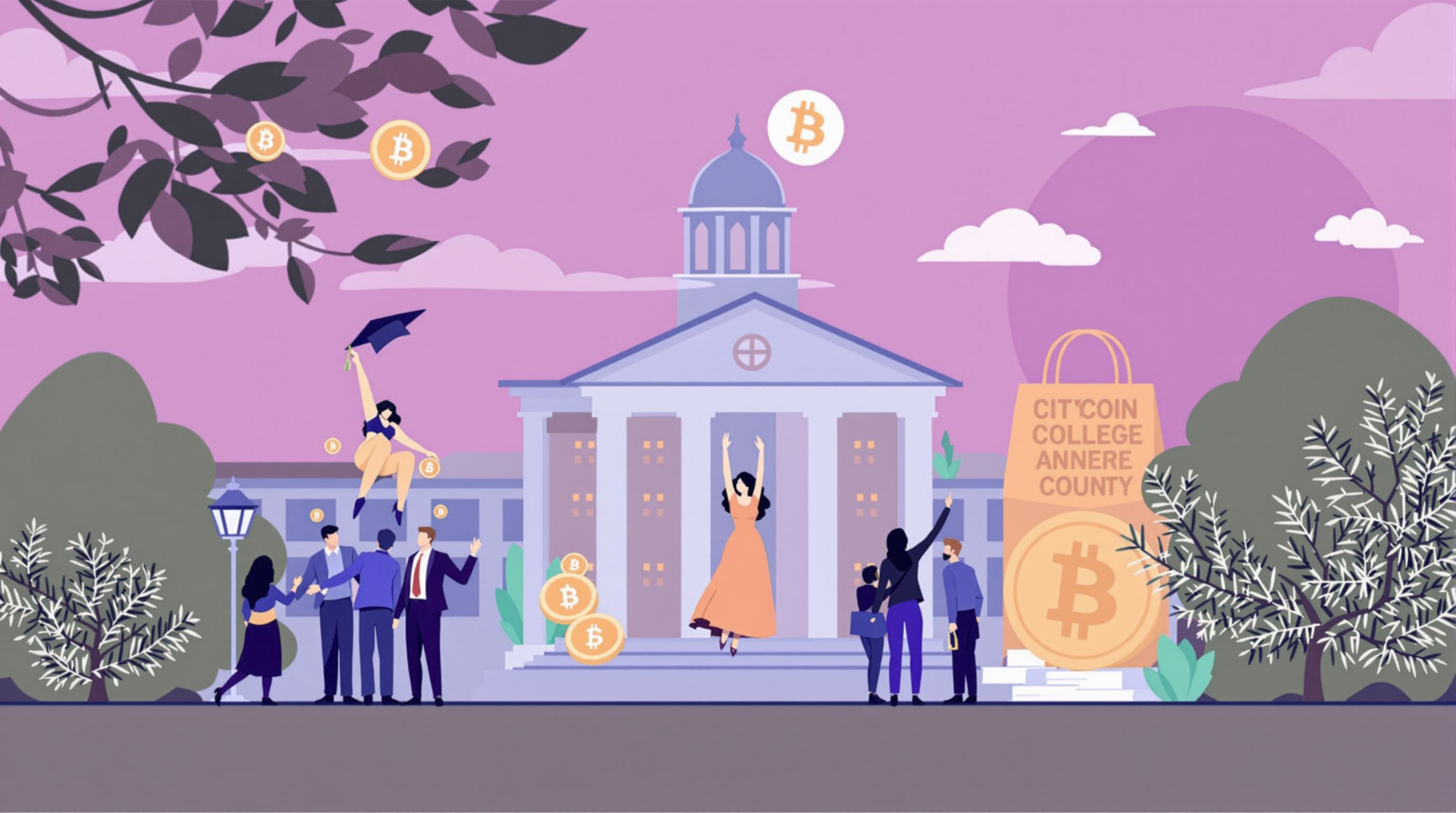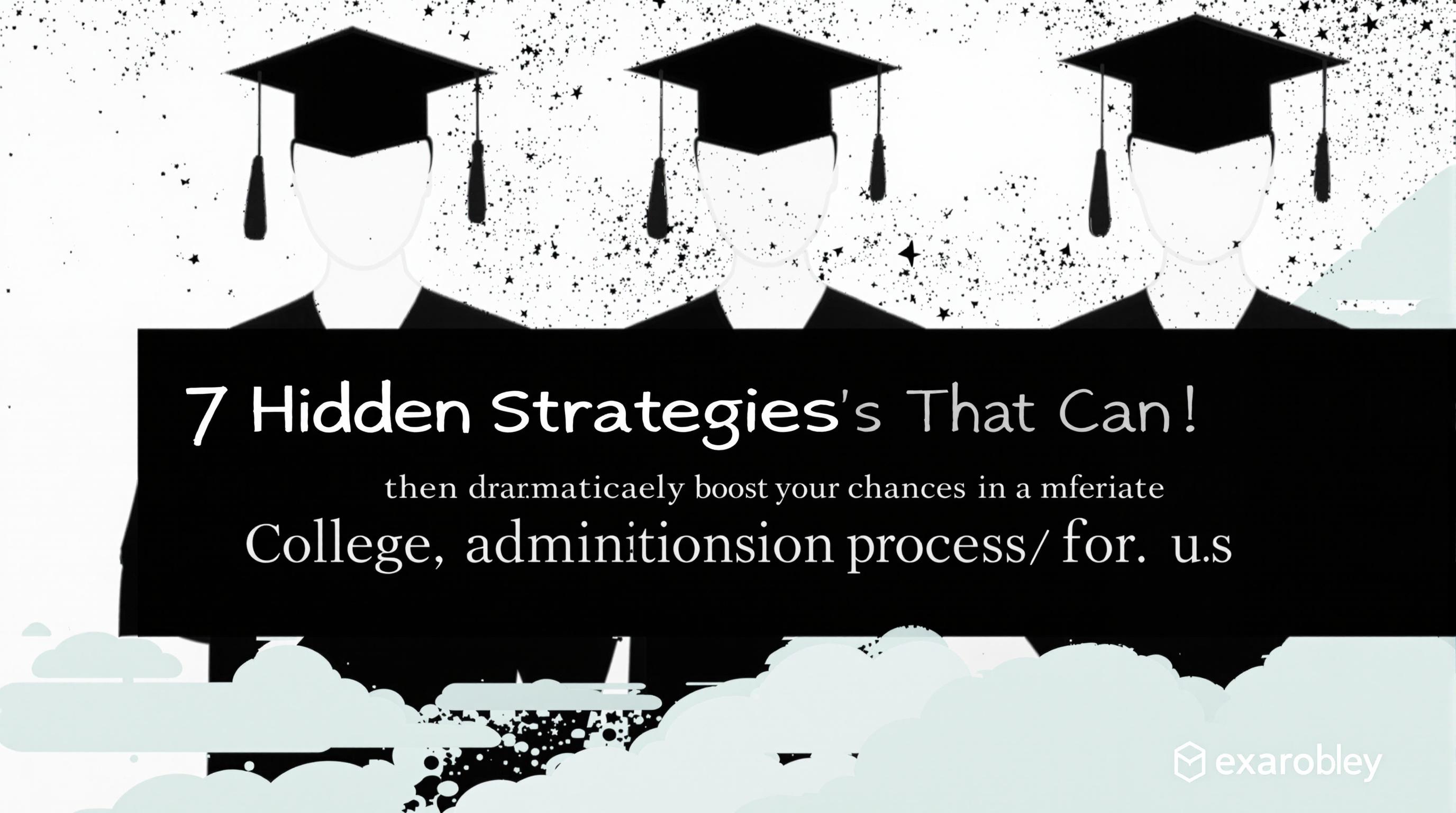Featured Articles
- 10 Unseen Factors That Could Transform Your College Admissions Experience in 2024
- 11 Surprising Trends in College Admissions: How Cryptocurrencies Could Influence Your Acceptance in 2024
- 7 Hidden Strategies That Can Dramatically Boost Your Chances in the College Admissions Process Today
- Beyond Grades: How Video Game Skills and Esports Experience Influence College Admissions in 2024
- "Beyond Test Scores: The Rise of Emotional Intelligence in College Admissions Decisions"
When Will AI Have Your Back? The Rising Role of Chatbots in College Admissions Decisions
When Will AI Have Your Back? The Rising Role of Chatbots in College Admissions Decisions
As artificial intelligence continues to evolve, its influence permeates various sectors, including college admissions. This article explores the increasing role of AI-driven chatbots in helping prospective students navigate their application process, while also considering the implications for fairness, data privacy, and the overall college experience.
AI: The Silent Partner in Admissions
Imagine this: You're a high school senior, anxiously preparing for college applications. You're inundated with choices, deadlines, and the overwhelming pressure of writing essays that distinguish you from the crowd. Enter the AI chatbot, your friendly, 24/7 admissions advisor. What once took countless hours and sleepless nights can now be streamlined through a simple chat interface.
The Basics of AI Chatbots in the Admissions Process
AI chatbots are sophisticated programs that utilize machine learning to process language and provide real-time assistance. According to a study by Gartner (2022), over 75% of higher education institutions were using or planning to implement AI-based solutions in their admissions processes. Whether answering frequently asked questions or guiding students through the application timeline, these bots function as the first line of support for students and admissions officers alike.
Real-World Applications and Success Stories
Take, for instance, the University of Arizona, which launched its chatbot, "Jasper," in 2019. Jasper quickly became a game-changer, answering a staggering 30,000 inquiries in its first six months while freeing up admissions staff to focus on more complex tasks (University of Arizona, 2019). The convenience offered by chatbots may improve a student's experience and provide the necessary support when human advisors are occupied with other responsibilities.
How Chatbots are Changing Student Interactions
But let’s be real—chatbots can sometimes feel less like a friendly assistant and more like a malfunctioning vending machine. For instance, a common complaint revolves around the bots’ inability to understand nuanced emotions or specific situations. For a stressed-out teen, receiving a generic response can be less than comforting. However, improvements in natural language processing are making these interactions increasingly human-like.
The Data Doesn’t Lie
The educational use of AI isn’t merely speculative; the numbers speak volumes. According to a report from EdTech Magazine (2022), institutions that implemented AI tools saw a 50% increase in the efficiency of their admissions cycles. This means faster responses to student queries and a streamlined review process for applications. A win-win, right?
The Ethical Dilemma of AI in Admissions
Yet, with great power comes great responsibility. As institutions increasingly rely on chatbots, concerns regarding fairness and bias become crucial. Data-driven algorithms can reflect and even exacerbate existing inequalities. If a chatbot is programmed using historical data from a biased admissions process, it might perpetuate those biases in its evaluations and guidance.
A Student's Perspective on AI Chatbots
Sara, a 17-year-old high school senior from a suburban town, shares her experience: "I initially felt skeptical about using a chatbot for my college applications. However, the instant responses helped me to focus on my essays rather than worrying about deadlines!" Her sentiment is echoed by many students who appreciate the reduction of stress that chatbots bring to a complicated process.
Balancing Human Touch with AI Efficiency
The ideal scenario seems like a balance between the efficiency of AI and the empathy of human advisors. While chatbots are excellent for mundane questions like application deadlines or GPA requirements, human interaction remains vital for discussing personal aspirations, financial aid, or campus culture. A hybrid approach could provide the best of both worlds, ensuring that students receive timely information while still feeling supported.
Data Privacy Concerns
But what about data privacy? With schools collecting an increasing amount of personal data, prospective students must be cautious. Can they trust that their information will be protected? According to a survey by Pew Research Center (2021), 79% of U.S. adults expressed concerns over how companies handle their data. It’s essential for educational institutions to implement robust data protection measures so students can feel safe while using AI tools.
Chatbots: A Double-Edged Sword
In 2021, a major college in California decided to overhaul its admissions process by integrating AI chatbots. Some initial feedback revealed students felt more supported than ever; however, these positive sentiments quickly turned when a technical glitch caused false rejections for thousands of applications one weekend. The college’s administration faced backlash, showing a clear need for a risk assessment when deploying such technology.
Future Implications: What’s Next?
AI technology in college admissions is inevitable; it’s only a question of how well it’s implemented. Universities need to consider not only the efficiency of these systems but also the broader implications on equity, data protection, and emotional support for students. Experts argue that this need for a multidisciplinary approach will shape the future of admissions—an evolution of sorts.
A Look Beyond College Admissions
While chatbots are currently making waves in college admissions, their roles may extend far beyond. These digital helpers can be utilized for student retention, career counseling, and post-graduation support. Colleges that prepare early for this potential might find themselves leading the pack in student satisfaction and success.
Finally, a Note on Humor
To inject a bit of humor: Picture talking to a chatbot for admissions assistance only to hear it respond with a meme from your great-grandma’s favorite sitcom! "Could you be more specific?" you might find yourself asking. The random quirks of chatbot responses can sometimes provide comic relief amidst the intense pressure of college admissions.
Conclusion
In sum, AI chatbots are here to stay, and they present a wealth of advantages in college admissions. However, it’s critical to navigate the ethical and practical challenges they introduce. The landscape is changing—or should we say “chatting”—before our very eyes. So, buckle up and embrace the future; AI just might be the supportive shoulder you've always wanted in your college journey!
As we look ahead, let’s hope that AI will not only assist us but also learn to understand the human experience better, ensuring that students have all the tools they need to succeed.




